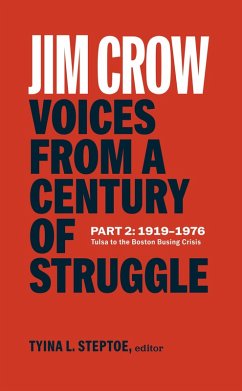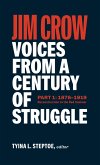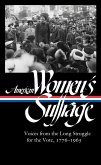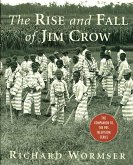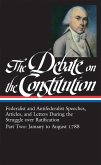A vivid firsthand record of the struggle for legal equality and dignity in the face of segregation and racial terror from 1919 to 1976 W.E.B. Du Bois famously identified "the problem of the color-line" as the defining issue in American life. The powerful writings gathered here reveal the many ways Americans, Black and white, fought against white supremacist efforts to police the color line, envisioning a better America in the face of disenfranchisement, segregation, and widespread lynching, mob violence, and police brutality. Jim Crow: Voices from a Century of Struggle, Part Two brings together speeches, pamphlets, newspaper and magazine articles, public testimony and appeals, judicial opinions, and poems and song lyrics-more than ninety essential texts in all-from the end of the bloody "Red Summer" of 1919 to the Boston busing crisis of 1974-76. This volume includes writing by both famous and lesser known individuals, including • B. C. Franklin on the Tulsa Massacre • Robert Russa Moton's suppressed address on the dedication of the Lincoln Memorial • Alain Locke's tribute to "the New Negro" • Ned Cobb's recounting of the harsh realities of sharecropping • Thurgood Marshall on police brutality in wartime Detroit • Rosa Parks's appeal for justice for Recy Taylor • Earl Warren's landmark opinion in Brown • Paul Robeson's defiant response to congressional inquisitors • Fannie Lou Hamer's eloquent challenge to disenfranchisement in Mississippi • and James Baldwin on the myths and meaning of the American Dream Also presented are white supremacist writings from the 1920s Klan and the Dixiecrats of 1948; examples of Southern voter literacy tests; blues lyrics sung by Bessie Smith and Big Bill Broonzy; Robert F. Williams's controversial call for armed Black self-defense; speeches by Marcus Garvey and Stokeley Carmichael; letters in the Black press about Confederate monuments; Ann Moody on her childhood in segregated Mississippi; and Mary McLeod Bethune's advocacy for reproductive rights as an essential element of democratic freedom. As the teaching of our nation's history, especially the history of race in America, becomes increasingly contested, this book will serve as a vital resource, a crucial reminder of where we've been, how far we've come, and how long the road ahead remains.
Dieser Download kann aus rechtlichen Gründen nur mit Rechnungsadresse in A, B, BG, CY, CZ, D, DK, EW, E, FIN, F, GR, HR, H, IRL, I, LT, L, LR, M, NL, PL, P, R, S, SLO, SK ausgeliefert werden.

